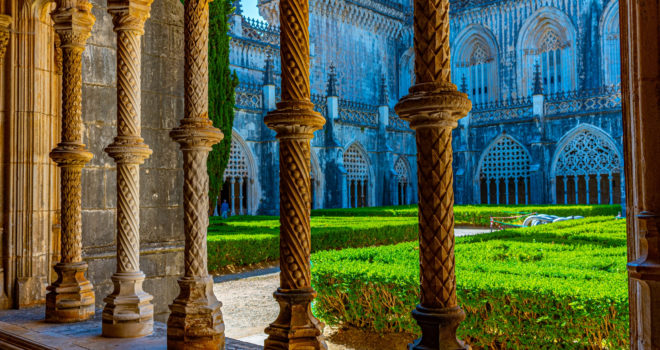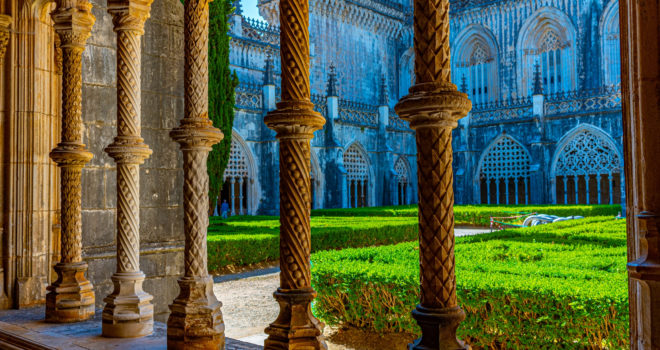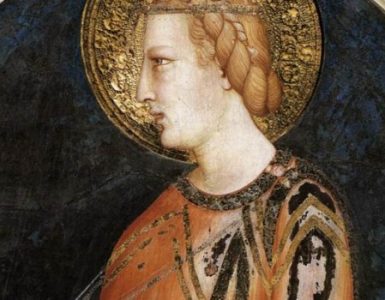Gospel (Read Jn 13:31-33a, 34-35)
St. John tells us that after Satan had entered Judas, driving him out into the night to report to Jesus’ enemies (see Jn 13:21-30), the Lord began to speak in an unexpected and baffling way: “Now is the Son of Man glorified, and God is glorified in Him.” We know that Judas’ betrayal led to Christ’s Passion – violent brutality, suffering, and a shameful public death. How could all that be described by Jesus as a glorification of both Him and His Father?
The answer is anticipated in what Jesus says next: “I give you a new commandment… As I have loved you, so you also should love one another.” Although Christ’s Passion had the appearance of failure, defeat, and impotence, it was, in fact, a revelation of God’s love for man that far exceeded anything man had ever before or ever again will see. God’s glory was revealed in the total self-emptying of Jesus on the Cross for love of us, doing for us what we are helpless to do for ourselves. Jesus submitted to great darkness and was thus able to conquer it. He emptied suffering and death of their sting. The “glory” of God is that even in the human circumstances that seem most devoid of His presence and care, God is at work to overthrow appearances and reveal His love for sinners in all its brightness and power.
Jesus also spoke about a “new” commandment of love. The Jews had been taught to love their neighbors as themselves (see Lev 19:18). What is “new” in Jesus’ teaching is that now God’s people are to love others as Jesus loved us — laying down His life for us, people who don’t deserve it. The bar has been set much higher! This kind of supernatural love can only come from Christ living in us. The presence of this love in us — our willingness to serve others as Jesus served us — will be “how all will know that [we] are [His] disciples.”
When this selfless love becomes the mark of the Church, then “is the Son of Man glorified, and God is glorified in Him.”
Possible response: Lord Jesus, help me see the small ways that my self-denial out of love today can be a flash of Your glory in this world.
First Reading (Read Acts 14:21-27)
We will better understand this reading if we know its context. Paul and Barnabas, on a missionary journey, visited a town called Lystra. There they healed a crippled man. The people were so amazed by this that they tried to worship the apostles as gods. Instead, of course, Paul preached the Gospel to them. However, some Jews who had opposed Paul in other cities he had visited (Antioch and Iconium) followed him to Lystra and provoked the people there to stone him. Thinking he was dead, they dragged his body out of the city. Yet “when the disciples gathered about him, he rose up and entered the city” (see Acts 14:8-20).
Remarkably, this episode gives us a living picture of how the early Church actually fulfilled what Jesus spoke in our Gospel. Paul and Barnabas faithfully preached the Good News. Darkness closed in on them, as the Jews stirred up murderous hatred. The violence against Paul was so extreme that his enemies believed they had killed him. The believers, looking beyond the darkness they saw, very probably prayed for him as they drew near his seemingly lifeless body. Miraculously, Paul “rose up,” as Jesus had done in His darkness. Glory! Then, amazingly, Paul “entered the city” again. Why would he go back to a place of such hostility against him? He still wanted to preach and to teach those who had believed in Jesus. This is the love of the “new” commandment, a self-emptying for the sake of others that is beyond what is naturally possible for man.
In the verses included in our reading, we see Paul continuing on to the next city, and then he returns to Lystra, Iconium, and Antioch. Although all these places were full of danger for him, he wanted to strengthen “the spirits of the disciples and [exhort] them to persevere in the faith, saying, ‘It is necessary to undergo many hardships to enter the kingdom of God.’” This is the same kind of glory Jesus had described, isn’t it? Far from being signs of God’s disapproval or indifference, earthly affliction opens the way to heavenly glory (see Mt 5:10; Rom. 8:17).
[Note: See that Paul and Barnabas “appointed elders for them in each church.” The Greek expression, “appointed,” means “to stretch forth hands” and alludes to the rite of priestly ordination (see 1 Tim 4:14; Tit 1:5). This helps us see the hierarchical, not democratic (elected by the laity) authority structure of the infant Church. This is apostolic succession in action in the New Testament, a succession observed to this day in the Catholic Church.]
Possible response: Lord Jesus, help me be as fearless as St. Paul in doing Your will, no matter what the cost.
Psalm (Read Ps 145:8-13)
All the psalms in the season of Easter give us an opportunity to sing God’s praises for His lavish, unthinkable love for us, demonstrated so unequivocally in the Passion, Death, and Resurrection of Jesus. In our Gospel, the Lord knew with confidence that the boundless glory of God was about to be revealed to all mankind in His suffering. He knew the words of this psalm would be appropriate for us: “Let Your faithful ones bless You. Let them discourse of the glory of Your kingdom and speak of Your might.” We must never forget the lesson Jesus taught His disciples at the Last Supper and that He teaches all of us through all the ages: “The glorious splendor of [God’s] kingdom,” although often veiled now, is indestructible. Therefore, today we can declare: “I will praise Your Name for ever, my king and my God.”
Possible response: The psalm is, itself, a response to our other readings. Read it again prayerfully to make it your own.
Second Reading (Read Rev 21:1-5a)
In our Gospel, we wondered why Jesus started speaking about glory when the power of His enemies was soon to overtake Him. Here, in St. John’s vision, we can see an explanation. Jesus knew that in the sacrifice He was willing to make, God’s plan to “make all things new” would begin in earnest, never to be undone. This beautiful heavenly scene gives us a glimpse of the conclusion of the history of “the former heaven and the former earth,” the time and space in which we now live. God’s plan is to make His dwelling “with the human race.” The old order of death, mourning, wailing, and pain will be over. Jesus knew at the Last Supper that His suffering would be temporary. St. Paul knew on his missionary journey that his suffering would be temporary. We, too, must understand this, and St. John’s vision is written down to give us exactly this kind of encouragement (see Rev 21:5b). The “new Jerusalem,” the Church, is being “prepared as a bride and adorned for her husband.”
We ought never to forget that although in this life we will shed tears, someday God Himself will “wipe every tear from [our] eyes.” Glory!
Possible response: Heavenly Father, thank You for Your promise to make all things new. This is our ray of hope in every darkness.
✠












